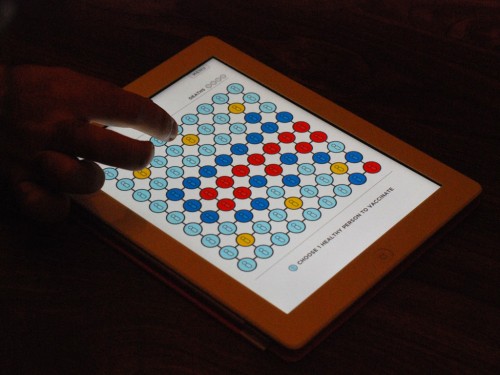Tiltfactor Laboratory announces POX: Save the Puppies
For Immediate Release
Contact: contact@tiltfactor.org
July 17, 2013 (Hanover, NH) – Tiltfactor Laboratory is proud to present a new digital game, POX: Save the Puppies! POX: Save the Puppies is a game developed for our collaborator in Australia, Dr. Mark Kelman BSc BVMS CMAVA (http://www.virbac.com.au). POX: Save the Puppies serves as a reminder that achieving herd immunity is not just important for humans, it’s also extremely valuable for animal populations. Our recent experimental research shows that playing the game gives players food for thought while also promoting an understanding of systems thinking concepts.





